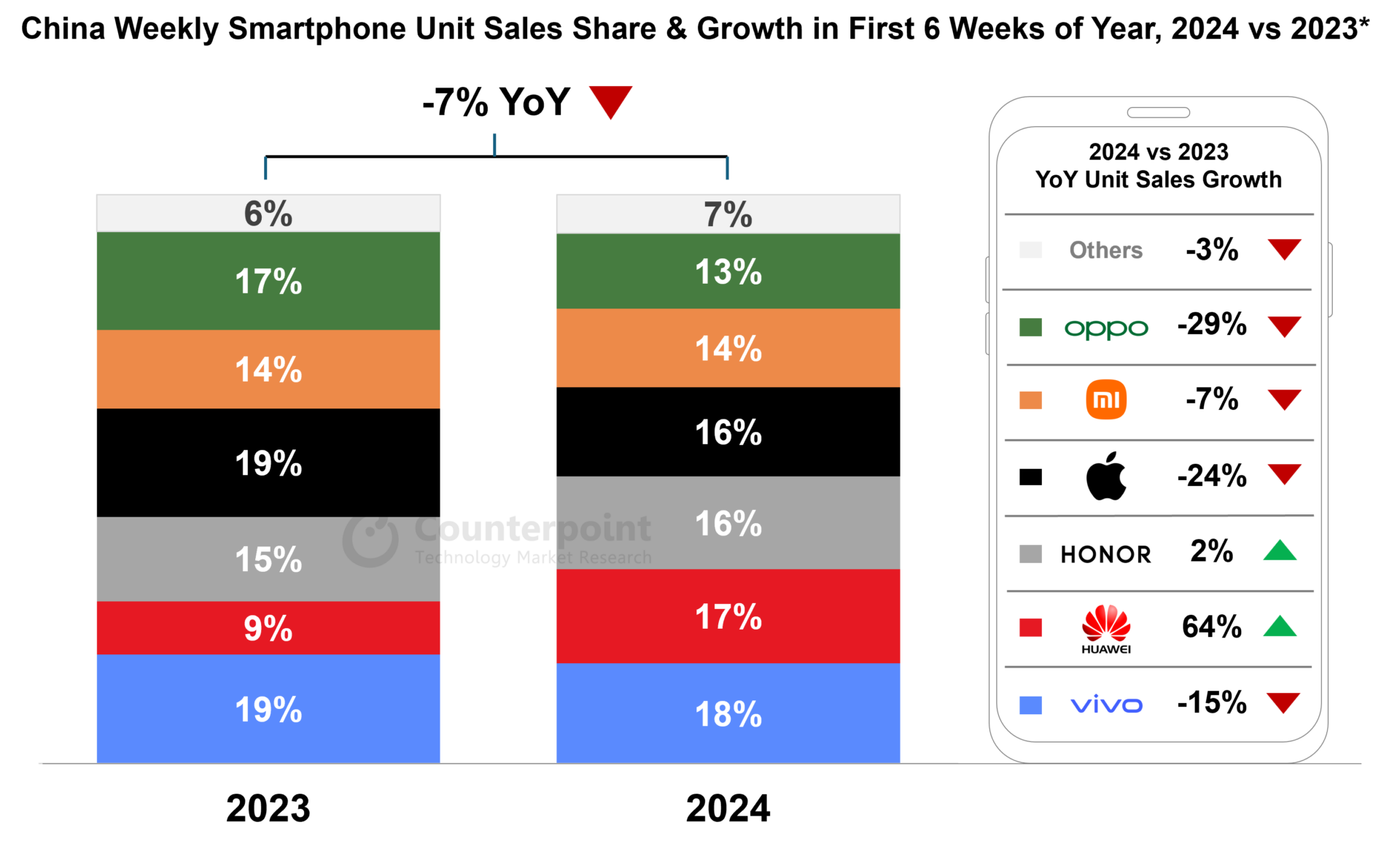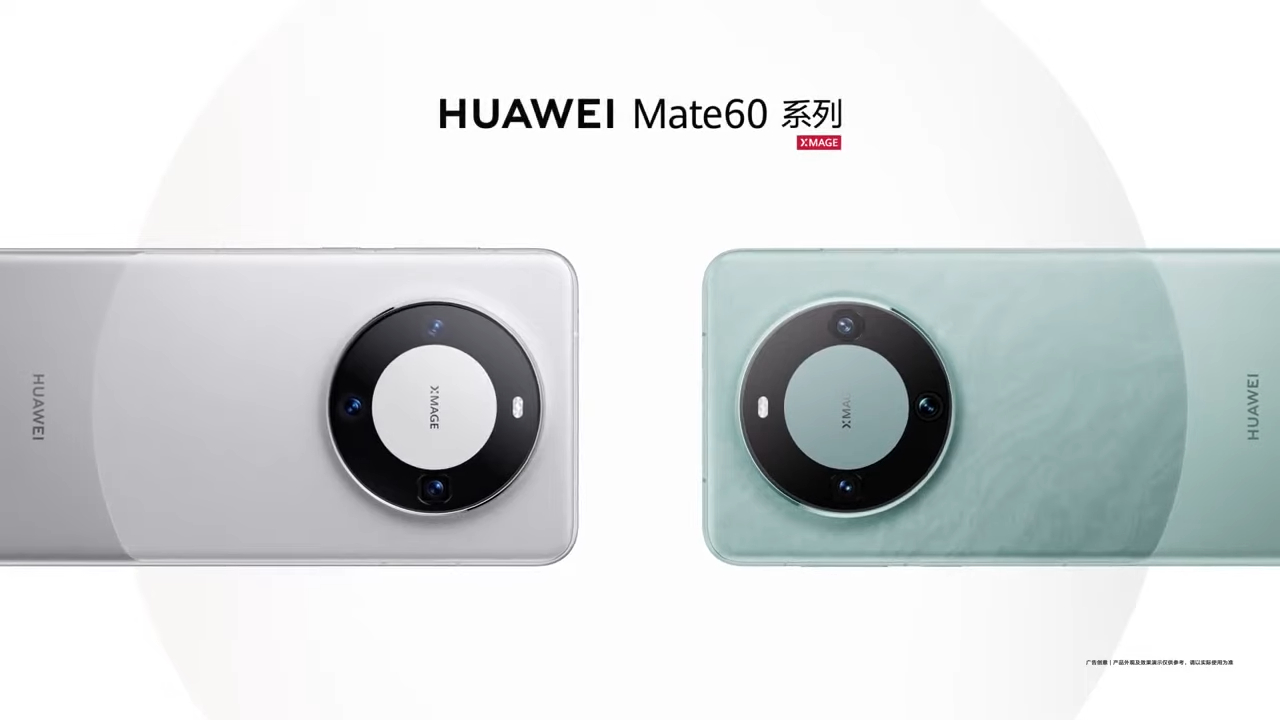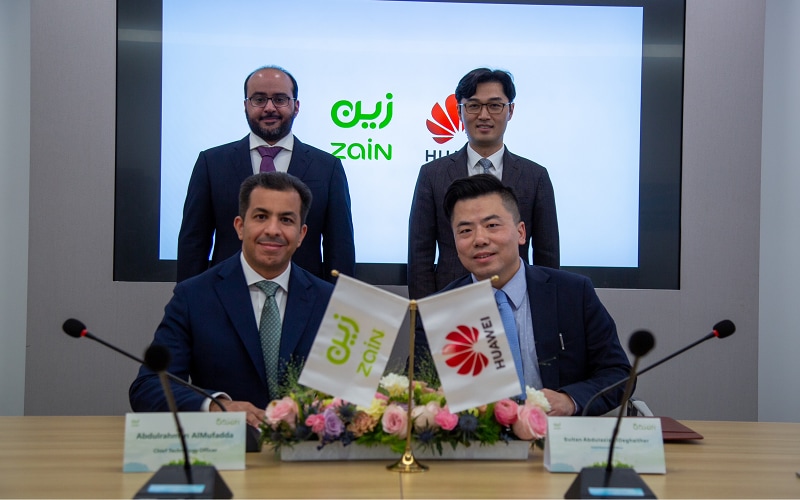Following Apple’s recent prominence in the headlines due to significant penalties incurred for compliance with the Digital Markets Act regulations imposed by the European Union, the American tech giant finds itself in another tight spot…
Again…
This time, reports from Counterpoint Research reveal a notable decline of 24% in iPhone sales inChina during the initial six weeks of 2024.
According to the report that was released on Tuesday, Apple iPhone sales witnessed a notable decline of 24% and that can be attributed to the heightened competition from Chinese rivals such as Huawei, Oppo, Vivo, and Xiaomi. Notably, in the early U.S. trading session, Apple shares too experienced a decline that exceeded 2%.
Behind the Dip
The reason behind is due to the formidable competition that Apple faced from the likes of the Chinese tech giant Huawei, that achieved a remarkable comeback in China with the introduction of its latest flagship, the Mate 60 series. While various Chinese smartphone rivals experienced decreases in their sales volumes during the six-week period, Apple’s decline was particularly notable, albeit less severe compared to its counterparts.
In 2023, Apple held 19% of the market share in China. That’s now down to 15.7%, as per Counterpoint. The other companies that were affected included Oppo that witnessed a 29% drop in smartphone shipments year on year, while Vivo and Xiaomi saw declines of 15% and 7%, as the reports below suggest.

Surprisingly, Huawei and its offshoot Honor emerged as the top performers during the initial six weeks. Honor, which emerged as a separate entity from Huawei in 2020 due to U.S. sanctions, saw a 64% surge in smartphone shipments, while Honor handsets witnessed a modest 2% increase.
Huawei’s Boom

Once dominating the global smartphone market in terms of sales volume, Huawei had faced a steep decline in competitiveness, particularly in its own home turf, China. That was when Apple emerged as the reigning champion in the high-end device segment, because Huawei devices had not yet featured 5G capabilities and no state-of-the-art semiconductors that led to a mass migration of consumers towards iPhones.
However, it does seem like Huawei has turned the tables ever since the company unveiled the Mate 60 series last year, boasting the cutting-edge HiSilicon Kirin 9000S chipset with 5G connectivity. This announcement caught the world off guard, especially considering the company was slapped with series of sanctions by the U.S. government in 2019 and 2020, severely restricting its access to essential chips and 5G technology.

Moreover, at the Mobile World Congress 2024 in Barcelona, Spain, Huawei and Zain KSA, the leading digital services provider in the Kingdom of Saudi Arabia, jointly signed an MoU and unveiled what Huawei proudly dubbed as the globe’s inaugural “5.5G” intelligent core network.

